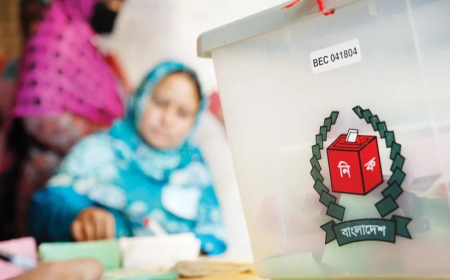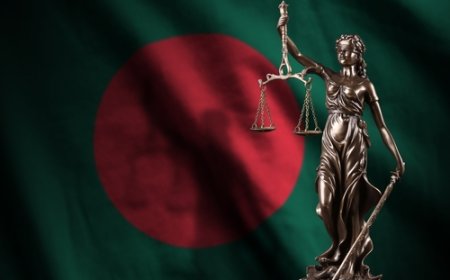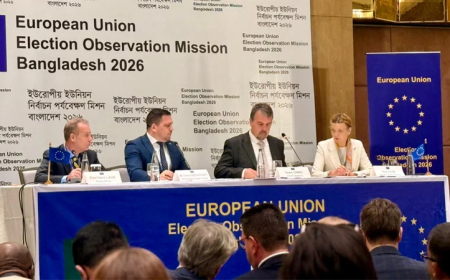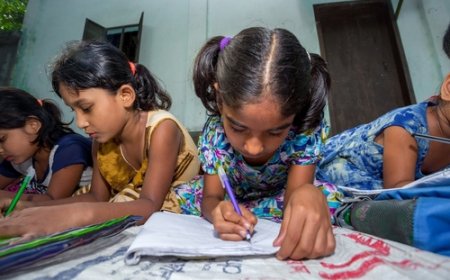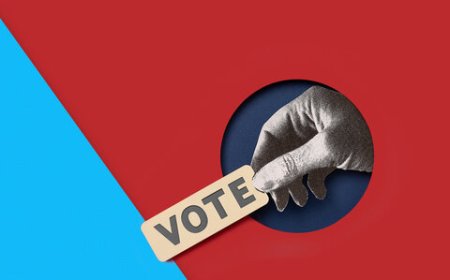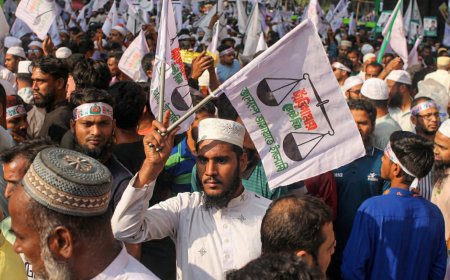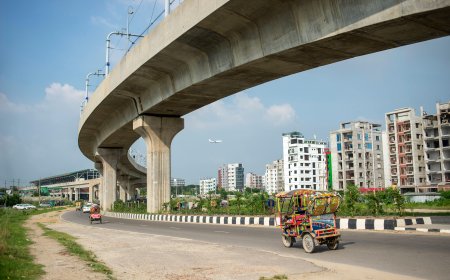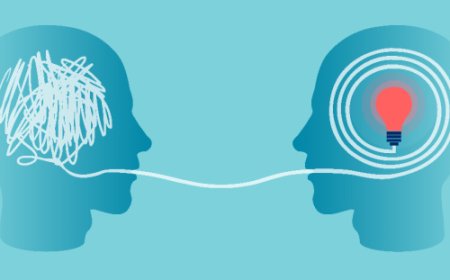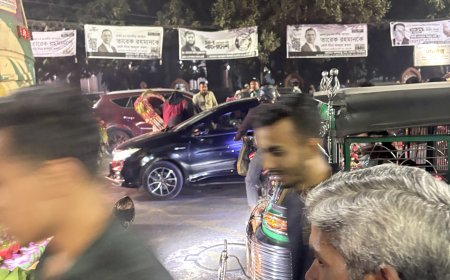Time to Listen to the Bangladeshi People
Let us step back for a moment and ask ourselves what it is the Bangladeshi people want at a time like this
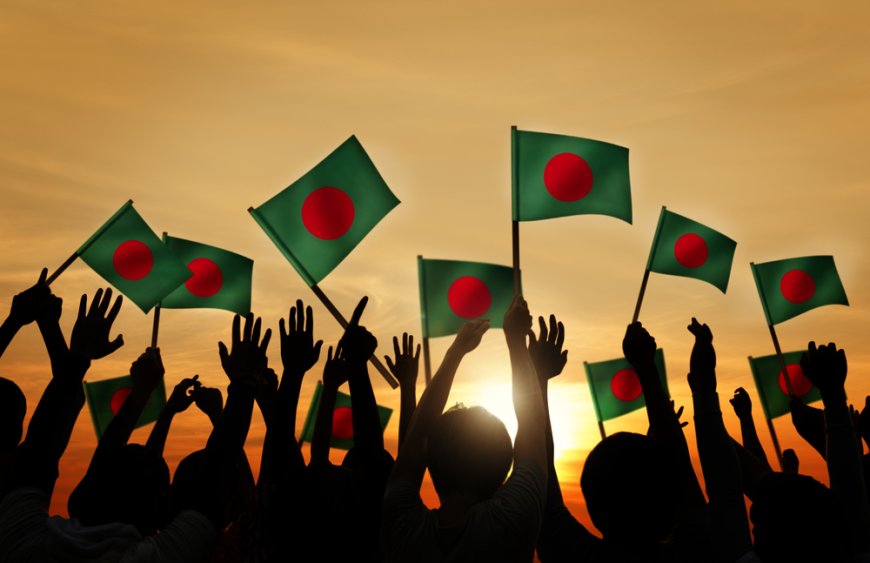
The events of the past 48 hours make it clear that Bangladesh is currently balanced on a knife-edge, with the political situation less stable than at any time since the Interim Government assumed office on August 8, 2024.
However, there is also less to the current imbroglio than meets the eye and a clear path forward that should be acceptable to all stakeholders, the feverish spinning coming from all corners of the political spectrum notwithstanding.
Let us step back for a moment and ask ourselves what it is the Bangladeshi people want at a time like this.
It is easy to lose sight of the fact that when we continually parse the preferences and imperatives of the various parties to power -- Prof Yunus, other members of the interim government, the army chief, senior officers, junior officers and enlisted men, BNP, Jamaat, NCP, AL -- the one party that is never consulted or whose opinion is apparently deemed irrelevant is the Bangladeshi people.
In the absence of elections, it is hard to say precisely what the Bangladeshi people want, but the most recent polling suggests that more than anything else the people value stability and would like to see an election sooner rather than later.
In a poll released by Innovision as recently as March this year, almost 60% of the voters indicated a preference for polls by the end of this year as opposed to less than 18% who indicated a preference for at least another year before elections should be held.
Why the Interim Government has not undertaken regular polling to see what the public wants remains a mystery to me, but in the absence of official numbers, the above are the best indication we have, and there is no reason to think that the Innovision poll is anything but robust and representative or to query its findings in this regard.
Given the current situation, the government should be scrambling to feel the pulse of the nation and asking them what they want, rather than make assumptions. Failing that, it seems that it is left to private parties to ask the tough questions.
Either way, the need of the day is to find out when people want elections: not when the army chief wants them, not when Prof Yunus wants them, not when BNP wants them, not when NCP wants them -- when the Bangladeshi people want them.
A further finding from the Innovision poll was that less than 15% considered political or constitutional reform any kind of priority for or expectation of the interim government.
Now, people may query the above figures, but it is incumbent on those doing so to provide a basis for their belief that the public values reforms above elections. Merely asserting this to be the case is not good enough. Trust me, bro, is no basis for denying people their democratic rights.
Which brings me to the energetic spin that has been making the rounds over the past 24 hours, suggesting that Prof Yunus is disillusioned with the current state of affairs and would rather resign than preside over a sham of an election.
This I believe. His frustration with the current state of affairs – with various factions, both in power and out, jockeying for position and advantage -- all while using the stability offered by his authority and credibility as an umbrella to advance their agenda -- is understandable.
Similarly, there can be no question that for Prof Yunus to preside over a controversial or compromised election would not be acceptable to him. He has been consistent in his vision that he wishes to preside over the fairest and most unquestionable election in the history of Bangladesh and that he will accept nothing less.
But here’s the thing that many of those who have taken to the airwaves and social media to defend his ostensible position (but crucially, not Prof Yunus himself) seem to miss: a good election is not quite the same thing as an election that is not one-sided.
Possibly the best elections we have ever had in independent Bangladesh were held in 2008, which returned a landslide victory for the AL. The fact that the AL won a landslide does not invalidate the legitimacy of that election. The same goes for the election of 1970 administered, by all people, of the Pakistan martial law regime: the mere fact of one party gaining a landslide victory does not invalidate an election and cannot be the criteria by which we judge an election’s acceptability.
There is but one criteria by which an election can be measured: did the people get to vote their conscience and does the election result reflect the will of the people. We may agree or disagree with the will of the people as expressed, but that cannot be the concern of those who administer the election nor is it a relevant criteria in measuring the election’s acceptability.
The notion that we need more time in order to hold a good election is unsupportable. What those opposing elections by the end of this year want is more time to gather votes. That is quite a different thing.
Similarly, the notion that the BNP can somehow rig the current election to their benefit is equally fanciful. The BNP is not in power. You can’t rig an election unless you are in power. The BNP has not held power in Bangladesh in over 18 years. The results of elections held by year’s end may not be to our liking, but that is not the same as the BNP engineering the elections.
The only real questions remaining is what becomes of the reform agenda, and which, if any reforms can be agreed upon or enacted prior to election.
I’ll be blunt: a far-reaching reform agenda was always unlikely in that it required a level of consensus within the polity that simply doesn’t exist in Bangladesh. And even if there are certain key reforms that we can garner a sufficient consensus around the question remains as to whether the Interim Government has the authority or legitimacy to implement them.
Don’t get me wrong. I would love to see far-reaching reforms in the body politic of Bangladesh. However, my sense is that we will have to scale back our expectations in this regard and focus on a bare minimum reform agenda that would be acceptable to a wide consensus of the Bangladeshi people.
More than anything else, the Bangladeshi people want and need stability. Prof Yunus and his Interim Government are to be commended for stabilizing the country in the aftermath of the fall of the AL and have done a capable job (in my assessment) of stewarding the country over the fractious last ten months. I shudder to think where we would be today without Prof Yunus to pick up the reins on August 8 and he should be appreciated for holding together an increasingly unstable coalition of partners -- both official and unofficial -- in an increasingly volatile and challenging environment.
But it is the mere fact of this volatility and instability that is the best argument for elections sooner rather than later. The current grand compromise only works if everyone is happy and willing to go along with it.
That is no longer the case. It is clear that the grand compromise is fraying and indeed potentially irretrievably so. The tenure of this government as with the reform agenda relies entirely on a minimum level of consensus among the various factions and political players that now clearly no longer exists, if it ever did.
With accusations and counter-accusations being thrown back and forth, and rumours and conspiracy theories thick in the air, the one thing that is quite clear is that we no longer can point to a sufficient national consensus for an extended tenure for the government to continue to operate effectively and without recurring and possibly worsening strife in the future.
Above all, in all of this, no one is asking, letting alone listening to, what the Bangladeshi people want. It is time to put the Bangladeshi people back at the heart of the political process, to give them their voice back, and to listen to what they have to say.
And there is only one way to do that.
What's Your Reaction?







